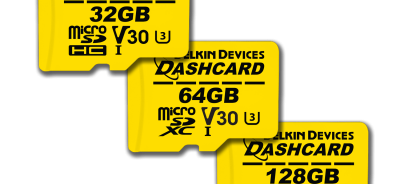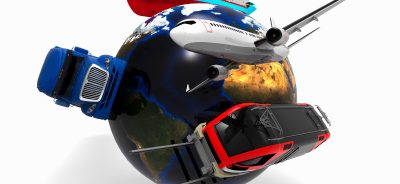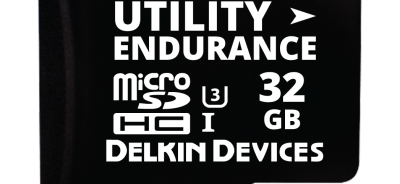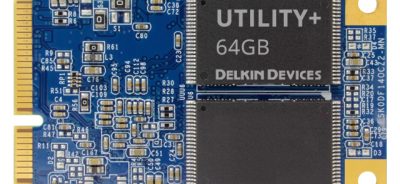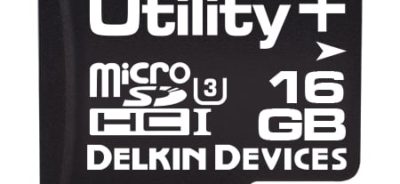Technical Success Stories: Is the Newest Version the Best? Cost Reduction Discovery for Industrial SD Cards
 “Our application needs the very latest, fastest SD technology, and our budget is less than $15, what are our options?”– True Customer Stories
“Our application needs the very latest, fastest SD technology, and our budget is less than $15, what are our options?”– True Customer Stories
The SD card standard is the most popular memory card in the world. As such, there is a lot of data on the speed classes, interface, and technology used to build this popular card family. Often when designing an embedded host, which may remain in the market for many years, there is a tendency to try and stay ahead of the technology curve, by designing in the very newest and latest technology available. The idea being that if you can guess the winners and the losers in card standards, there is less of a chance your host may use a card standard that is EOL, or no longer a viable option in the future. Evaluating the standard needed can lead to cost reduction when purchasing Industrial SD cards.
Many OEM designers have learned their lesson when looking at the old vanished card standards like SmartMedia, MMC, xD or MiniSD. The decision of which card to use could be critical at some point in the future. Choose poorly and run the risk of possibly dooming your product at some point.
SD has not been all smooth sailing however, as capacities have increased, and the interface changed with the OS in use, SD (SC) became SDHC, and then SDXC based on capacity. The latest SD specification 6.0, includes the newest UHS-III Bus interface, and further defines the UHS Speed class (U1 or U2), Video Speed class (V6 to V90) and even Application Performance Class (A1 or A2). The SD association, in their zeal to keep the standard relevant for so many new applications, has in fact created a rather complicated nomenclature surrounding SD cards.
Customer Story
The customer had a sophisticated video logging application, and was after MicroSD as a back-up in cameras. Their host recorded to a central location, but in the case of failure or power outage, the cameras recorded locally. The buyer researched Industrial and Rugged SD and determined that since the application was using video, that the very fastest and highest capacity was required. The main problem was that the budget really did not support the costs she was being quoted by various suppliers.
Delkin Discovery
The first step for the Delkin Customer Applications team was a complete understanding of the requirements of the customer. Starting with the usage model of the cards, Delkin was able to determine what indicators appeared as a card was used over time. Fully understanding the requirements of the host is always a key to learning about the true usage of the card. Delkin utilizes a number of industry available tools to monitor signals and power usage of the card, and also some tools proprietary to us. In addition, key in the investigation is the file type, structure, and how it is written to the card.
From this data it was an easy step to determine the video captured did not require high speed or high resolution, and there were actions that could be taken in order to optimize the usage. This all led to a simpler solution that would get closer to the cost target without losing any of the reliability that the application required.
Delkin Solution
By doing some non-FAT optimization, like optimizing the wear leveling algorithm for this card, and minimizing the WAF (Write Amplification Factor) the life of the card was extended. Further work on minimizing the randomness of the writes to influence both how the FW committed data, and the amount of Garbage collection, all contributed to a less expensive, perfectly balanced card for the application. The best news was that this card with the mentioned adjustments was available in the Delkin Utility line of cards. As a controlled BOM Industrial storage product, and a less expensive choice of cards, they ended up much closer to their budget.
The latest technology and the most recent version of the standard are assumed to be better and more modern. Perhaps upon analysis, some changes can be made within the card or host itself to solve a problem or make the usage more efficient. That was the case in this situation, and the OEM found a solution not offered anywhere else.
Lesson Learned
You have to choose carefully when designing an industrial storage solution for your embedded device. The latest iteration of cards may not be the right solution for you. Industrial flash and storage products rely on a strong, modern CPU to bring features your host can use, so consult with Delkin to help you make the right choice on a custom embedded storage solution that meets your needs.
Lean on Delkin’s Technical Team
Have you had a problem with your host storage? The Delkin Customer Applications team stands at the ready to be your trusted advisor for your host critical storage. We have solved hundreds of complicated host failures and look forward to understanding your usage model for flash based Rugged Controlled Storage.
 Login
Login Register
Register


